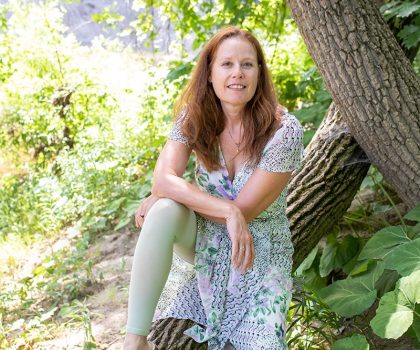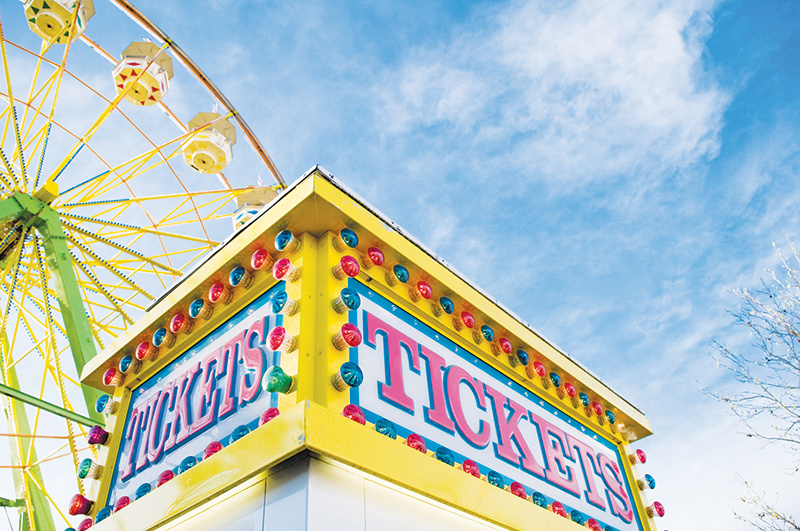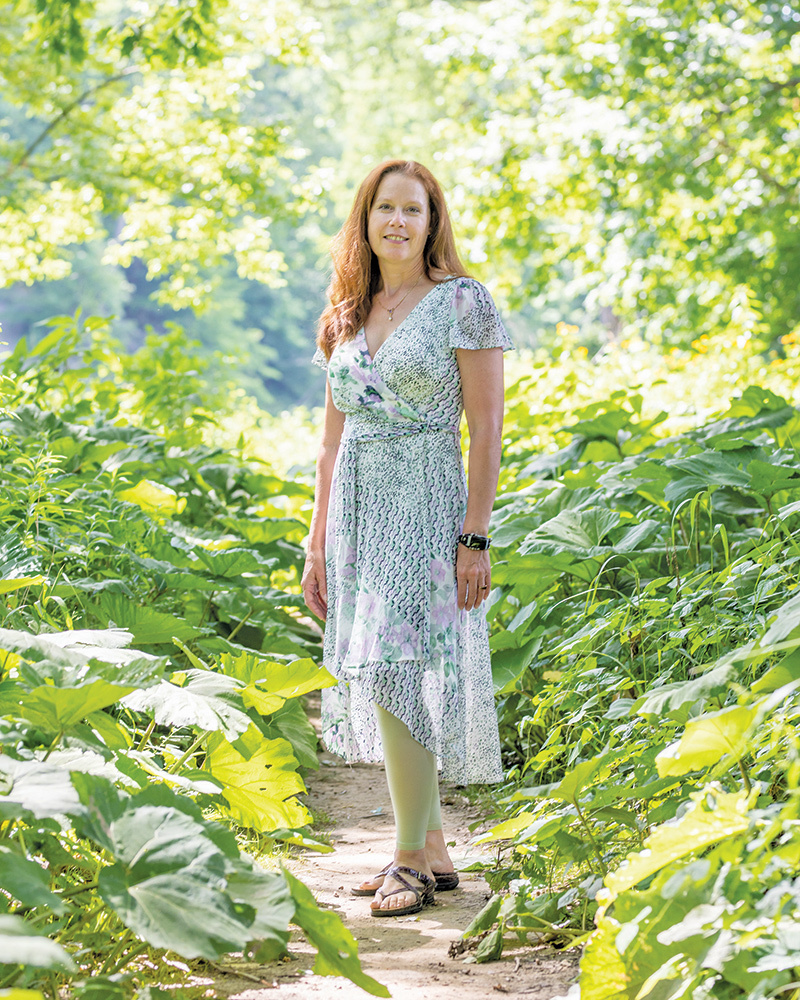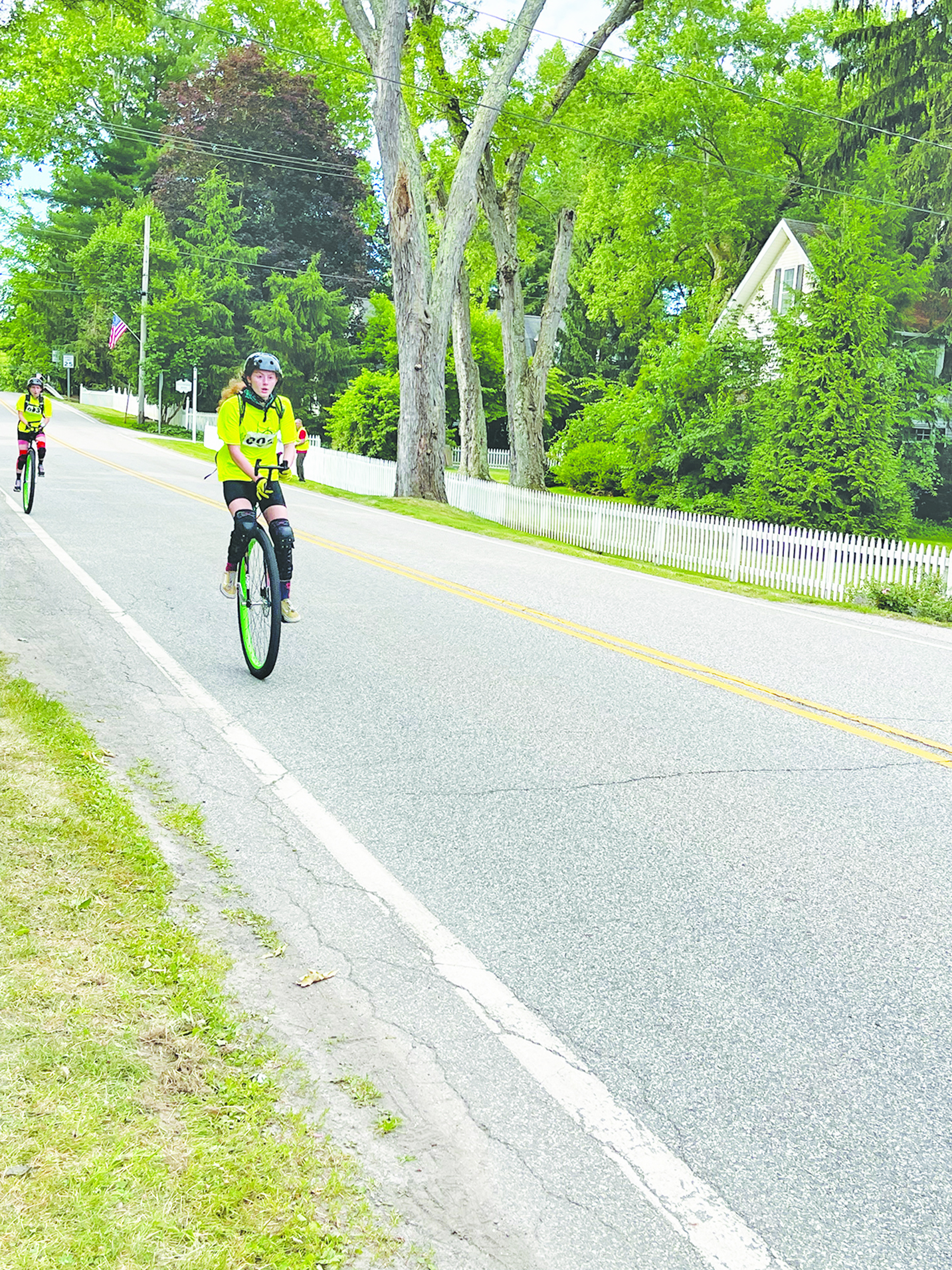Summer heat and increased activity can make varicose vein symptoms worse

By Mimi Vanderhaven
We are already nearing the midpoint of summer when heat and increased activity can exacerbate symptoms of varicose veins, including achiness, swelling and fatigue. In fact, county fairs—like the Great Geauga County Fair coming August 31—can be a perfect storm for symptoms.
“County fairs are a good reminder of the importance of taking care of our legs,” explains Sonja Stiller, M.D., founder of Mentor’s Center for Advanced Vein Care. “If you suffer from venous disease, including varicose veins, walking the midway in the heat and enjoying sugary snacks and carbs can make symptoms worse.”
Varicose veins can cause reduced blood flow, which means your veins cannot do their essential job of moving metabolic waste and other toxins up and out of your feet, ankles and lower legs, Dr. Stiller says. “This build-up of toxins results in inflammation, which causes pain, fatigue and swelling,” she adds. “And it’s made worse by inflammatory foods heavy in sugar and carbs, like those legendary fair French fries and funnel cakes, along with sitting for long periods in the grandstands watching everything from horse riding demonstrations to demolition derbies.”
Like many patients with varicose veins, Dr. Stiller herself has a family history of venous health concerns.
“Genetics can play a big role in the development of varicose veins,” she offers. “We have a lot of patients who say, ‘I don’t want my legs to look like mom’s or dad’s legs.’ I’m the same way. Because of my own family history, I wear compression socks almost every day. It helps, but I know one day I will need treatments, too.”
And that day may soon be here.
First-Hand Experience with Symptoms
Dr. Stiller has two active daughters who participate in a variety of sports, including unicycle competitions. Yes, it’s a thing. In fact, just three weeks ago Dr. Stiller served as the director the North American Unicycling Championships and Convention, which was held last month right here in Northeast Ohio, including in many parts of Geauga County. The seven-day event featured many competitions, including a marathon, half-marathon, a 10K, slalom, basketball and more—all on unicycles.
“I was so busy during the first two days of the competitions that I forgot to wear my compression stockings,” Dr. Stiller reveals. “As a result, my legs were swollen, tired and achy. On day three I went back to wearing compression and I felt better almost instantly.”

The Importance of a Healthy Venous System
When describing the circulatory system, Dr. Stiller often compares it to the limbs of a tree, which branch out into ever smaller limbs and twigs carrying nutrition to and from the leaves and roots. Unlike arteries, which carry nutrition and oxygen from the heart to our cells, our veins carry away waste from the metabolic process. In other words—as Dr. Stiller likes to say—our veins “take out the trash.” And because of gravity, this trash tends to accumulate in our lower legs.
“If these toxins are allowed to build up in our legs, it can lead to leg pain, fatigue, inflammation and a host of other problems,” she says. “And if it spreads to surrounding tissue, it can create a scaly rash and lymphorrhea, or ulcers and sores that won’t heal.”
One of the best ways to maintain good venous health and prevent the build-up of toxins is simply to walk.
“Many people don’t realize it, but the calf muscle is responsible for pumping blood up and out of the lower leg,” Dr. Stiller explains. “That’s why we call it ‘the second heart.’ By walking and doing toe raises, we help build strong calf muscles. Our practice specializes in leading-edge varicose vein treatments, but we also take a more holistic approach. We always speak with patients about nutrition and exercise. The initial goal is 5,000 steps a day. If you can get there—no matter how slowly—you’re going to feel a lot better.”

How Are Your Legs Feeling?
Dr. Stiller advises all of us to simply pay attention to how our legs are feeling. “Sometimes we’re so busy taking care of others that we don’t pay attention to ourselves,” she says. “Think about your legs. Are they tired, achy, tingly, swollen? Do you feel relief when you can finally put your feet up at the end of the day? Have you noticed spider veins, a rash, eczema or changes in skin color? Any of these symptoms can indicate a bigger problem underneath.”

Leading-Edge Treatments
Unlike painful stripping surgery our parents or grandparents had to undergo, today’s varicose vein treatments are easy and virtually pain-free. Center For Advanced Vein Care employs several of today’s most advanced treatment options, including chemical, radio frequency, thermal and laser ablation, ultrasound-guided sclerotherapy, and newer medical adhesive ablation (glue) that reduces or eliminates the compression stocking requirement.
But the cutting-edge center also focuses on healing from within, making recommendations that go beyond traditional varicose vein treatments, including lymphatic massage, pulse electromagnetic frequency devices, and lifestyle adjustments.
“We focus on healing from the inside out,” Dr. Stiller explains. “We work with patients to help them improve their sleep patterns, for example. Proper sleep improves brain function and is essential to reducing inflammation. We also recommend exercises that people will actually do. Being active helps reduce inflammation, and walking helps keep your calf muscles healthy and strong. We talk with our patients a lot about diet and nutrition, weight loss, and venoactive supplements. We don’t even offer many of the things we recommend. We just want people to feel better.”
Dr. Sonja Stiller is a diplomat of both the American Board of Emergency Medicine and the American Board of Venous and Lymphatic Medicine. She is the founder of the Center for Advanced Vein Care, a Tier 1 provider with Lake Health Hospital System, located at 7200 Mentor Avenue, in Mentor. For an appointment, call 440-710-1140. More information can be found at YourHealthyVeins.com.
